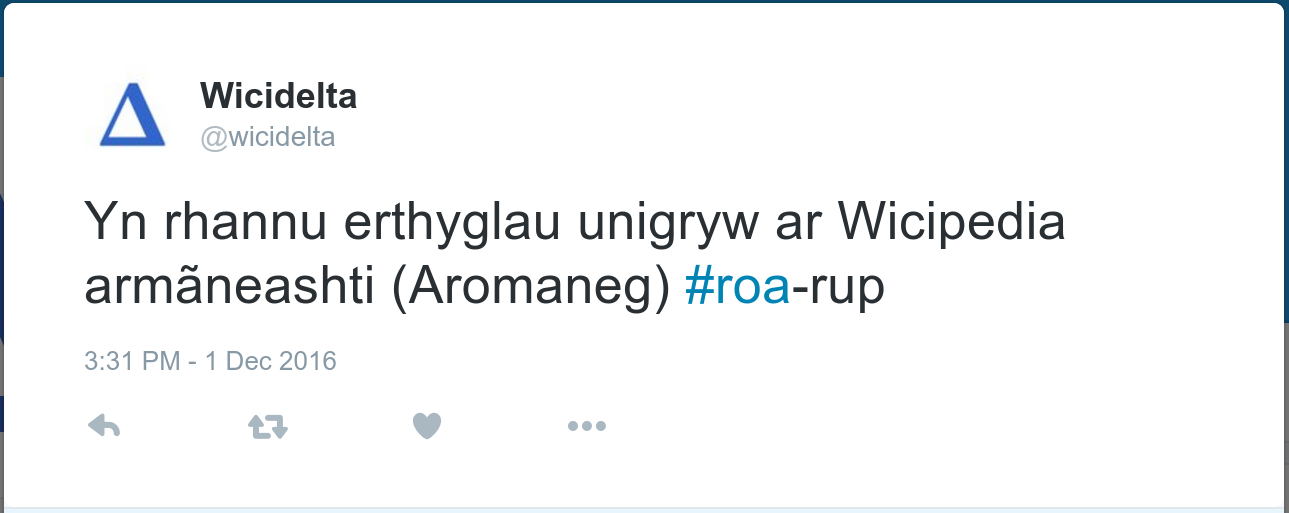
Dw i wedi dechrau fersiwn Gymraeg o gyfrif Twitter Wicidelta.
Mae gen ti ddewis!
O ran yr enwau yr unig wahaniaeth yw’r ‘c’ neu ‘k’ – Wicidelta neu Wikidelta.
Hefyd mae Wikimedia UK wedi fy ngwahodd i ymhelaethu am Wicidelta ac mae dwy fersiwn o’r blogiad newydd fynd yn fyw:
- Wicidelta: erthyglau Wicipedia unigryw mewn 284 iaith (blogiad yn Gymraeg)
- Wikidelta: glimpsing unique Wikipedia articles in 284 world languages (blogiad yn Saesneg)
Diolch i Llywelyn2000 am ein cyflwyno.
Prin yw’r siaradwraig neu siaradwr Cymraeg sydd ddim yn ymddiddori mewn ieithoedd gwahanol dw i’n credu.
DIWEDDARIAD 9 Rhagfyr: newydd ychwanegu rheol sy’n atal erthyglau llai na 1000 nod er mwyn ceisio canfod mwy o’r ‘gorau’ o bob iaith. Fe oedd ’na ambell i erthygl rhy fach. Gawn ni weld pa gynnwys a ddaw. Fel o’n i’n dweud yn y blogiad mae ’na rheolau eraill hoffwn i ychwanegu.